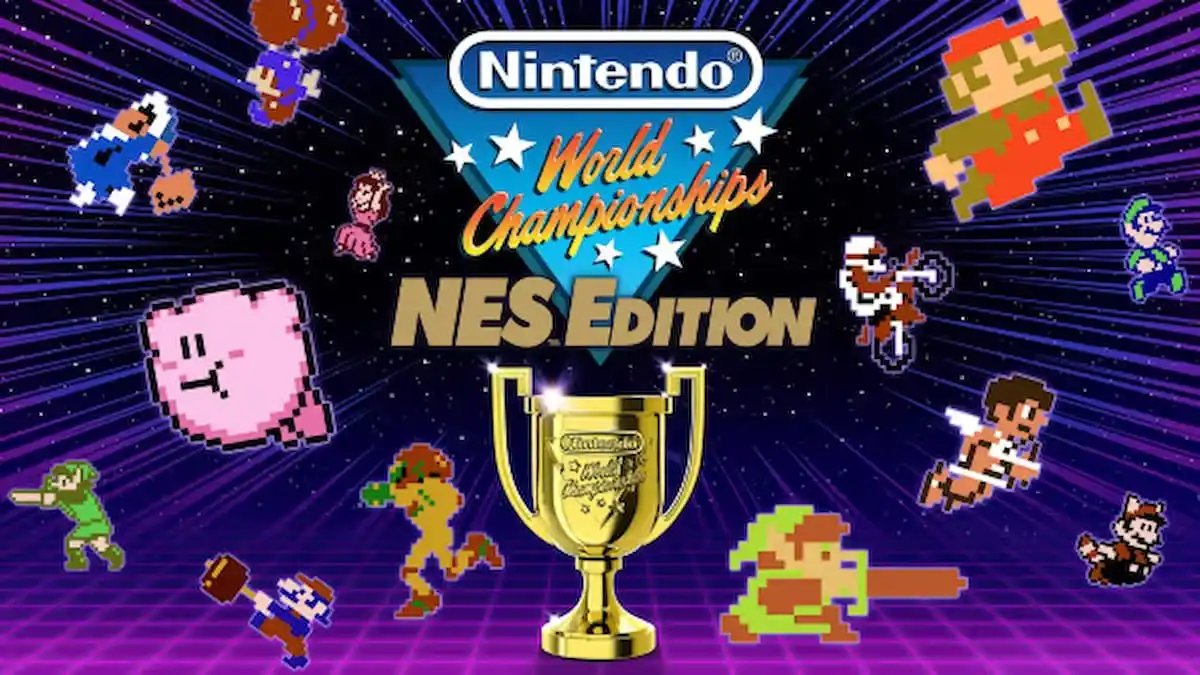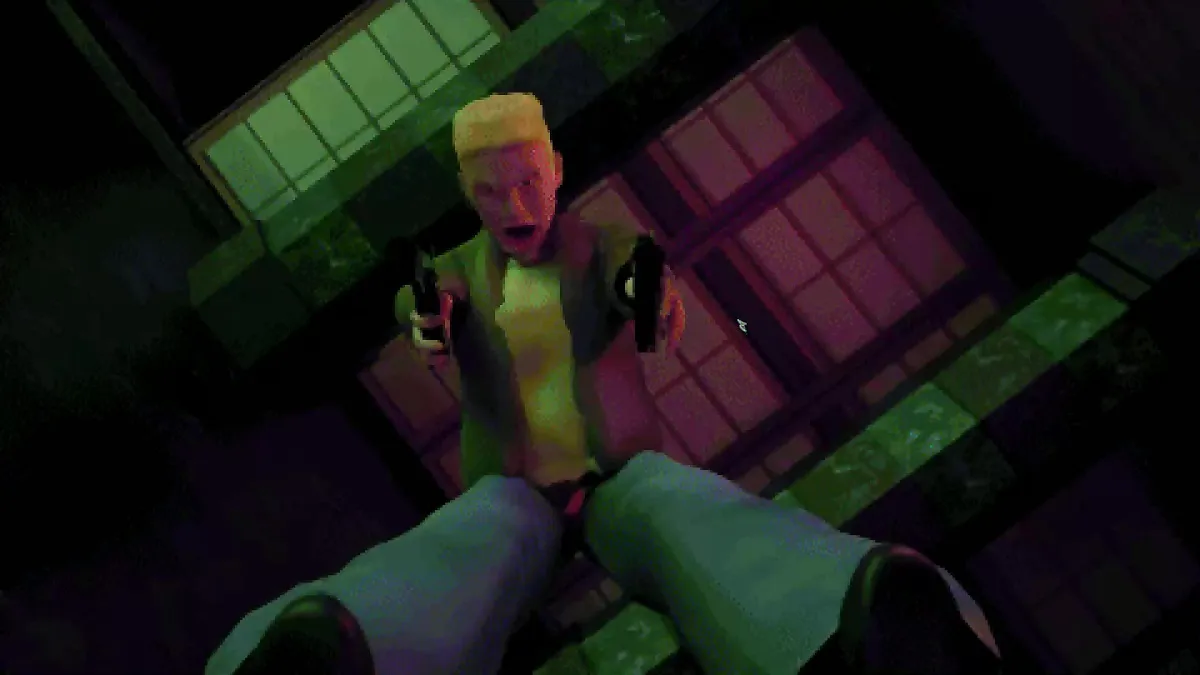[Monthly Musing promotions are starting to wrap up! As one of our last promotions, ThaJinx tells us how the relationship between Ico and Yorda created a stunning gaming experience. Promotions are all lined up for tomorrow and the weekend, but be on the lookout for the next Monthly Musing topic on Monday! — JRo]
It constantly surprises me how many people haven’t played ICO. If its creator — Fumito Ueda — is to be believed, the lack of a gargantuan playerbase is the result of the game not having a certain degree of accessibility, thus making it “not good enough.” I don’t know how much I agree with that; so much of what makes the PS2 title sparkle is the return on a player’s investments. For being such an extraordinarily short game, the detailed environments coupled with the minimalistic storytelling end up packing quite a punch. It is a punch that hit me in the space of less than a second, and forever changed how I view the relationship between characters and game design.
There is a lot of context for this moment. Hopefully you’ll indulge me and give me some time to explain before we get to it.

ICO is, at its core, a tale of escape. You play the titular character, Ico, a little boy with horns who is led into the depths of a dark castle and left to die alone in a tomb. As evidenced by the number of other small, identical stone prisons surrounding Ico’s, he is not the first who has been left to suffer this terrible fate; legend tells that boys born with horns are harbingers of terrible misfortune, and to abandon them here is the only way to avoid this fate. No, Ico is not the first to be condemned to death. He does, however, appear to be the first who has managed — by what seems to be sheer coincidence — to have been freed from his death cell and given a chance to escape the castle.
Very early in his exploration of the castle, Ico meets a young woman named Yorda, and she is also a prisoner here; despite a language barrier that prevents either from understanding a single word that the other has to say, it becomes quickly obvious that the two of them will need each other if they want to escape. And escape they must; it is, really, the only objective. Ico and Yorda will constantly be accosted by shadowy figures seeking to recapture Yorda, who will need Ico to defend her. The trade off is that her powers are the only thing that can open many of the passages in the castle. Ico can’t escape alone, and neither can Yorda.
Upon reaching the castle’s main gates, the path seems clear; a long, thin bridge is the only thing leading from the castle to the mainland and freedom. However, the way is impeded by Yorda’s mother, the Queen, who demands that Ico leave Yorda within the castle walls. Her reasons wouldn’t win her any Mother of the Year awards; she makes it clear that Yorda’s only purpose is to be subsumed by her, thus granting the Queen immortality. To make sure Ico doesn’t get any funny ideas, she seals the gate before vanishing. The path to freedom has been diverted; if the pair wants to get out, they’ll have to navigate the castle and reactivate the gate doors in order to reopen them. It is here that the introductory phase ends, and the player gets into the real meat of the game.

While the Queen seems like the primary antagonist, a perspective that is supported by the fact that Ico will inevitably face her before the game ends, it is the castle itself that will taunt and befuddle at every turn. Bleak and dreary, decaying and desolate, there is nothing friendly in it save for Ico and his companion. As I progressed, the place of Ico’s planned death seemed more like an active agent of evil, built specifically to keep its inhabitants in captivity. The castle conspired against me with every step I took through it, a nagging feeling reinforced by both its extreme emptiness and the disparity in size between it and the characters. Never was I able to forget that this is a place where horned boys are sent to die.
As I navigated the castle’s corridors and vistas, the relationship between Ico and Yorda seemed less and less like a necessary arrangement, some mutually beneficial undertaking, and more and more like a genuine, caring friendship. With no real dialog to indicate that this is the case, it’s the little things that make the insinuation. The way Ico helps Yorda climb a ledge that might be a little too tall for her, the extending of a hand over a perilous gap, Yorda’s willingness to run to Ico whenever he calls to her. When you want to save the game, Ico and Yorda sit calmly together on a couch. When the two are together, most of that time is spent holding hands. So much is done to humanize the relationship between Ico and Yorda that I found it impossible to ignore.

The end result was that as a player, I actually cared about what happened to Yorda. I was invested in her not only because she was the keymaster, but because she was a friend. It wouldn’t be enough to escape alone; Yorda would have to be there to breathe the free air, too. This feeling was locked into place when the castle gate was finally reopened, an act which takes a great deal of Yorda’s energy, leaving her battered and broken. If Ico takes her hand and tries to run with her, as he has the whole game, she will collapse, unable to continue on. My heart completely and utterly broken for her, I took her hand and carefully, slowly helped her across the bridge, the promise of liberty looming on the horizon.
The pair will only make it halfway across the bridge before a cutscene ensues, during which the Queen launches — via the castle gate’s power system — a beam of energy that ensures that Yorda doesn’t take another step. Ico is knocked away from her, almost falling from the bridge into the rocky waters far below, and the bridge splits clean down its center, either end beginning to slowly drifting apart. On the side drifting closer to land is the precariously dangling Ico, while Yorda remains crippled on the side heading back to the castle and the Queen. Ico musters his strength and climbs back onto his side of the bridge, facing Yorda, and as he rises to his feet the black cinema bars fade, and the scene continues in full screen.
It is this singular moment that this article is about. In fact, as far as I’m concerned, it is this singular moment that the entire game is about.
Never mind that on the land side of the bridge there are more statues barring the path that only Yorda can move, and that you would absolutely need her if you truly wanted to complete your escape. Never mind that were you to leave Yorda, the bridge would eventually retract all the way back into the land, leaving you nothing to stand on and sending you tumbling to your death. These are things that I didn’t even rightly know until the second time I played through the game, so that they happen to be the case does nothing to cheapen my immediate, adrenaline-fueled reaction to the realization that even though the cutscene had ended, the action was still seamlessly and unceasingly happening, and that I was in control.
I jumped.
Without question or hesitation, I jumped to Yorda, to my friend in need, across that ever widening gap between freedom and captivity, back towards that insidious castle and its inescapable story of death. And for the first time in the game, it was Yorda reaching out to catch Ico instead of vise-versa. It felt like a reward for a presumptuous, impulsive, selfless act. Before she can help him up, though, Yorda is enveloped in shadow, and Ico plummets into the mist below.
When Ico awakens, he is lying on top of one of many spiked cages dangling from the underside of the mainland’s cliffs above the sea, a thunderstorm raging all the while. It is here that the final act of the game begins. There is no more saving, no more sitting comfortably on a couch with Yorda for a moment’s reprieve. From that moment on the bridge and onward, the entire game has completely and irreversibly changed. No longer does Yorda serve as a partner in escape. No longer is escape even your objective; this just became a rescue operation. My friend had been taken, and it was up to me to get her back. That meant crossing the channel and going back into the castle, back into the Queen’s Tower, back into the very room where Ico was left to die in the game’s introduction. And not once, from crossing the churning waters, to fighting the generations of boys left to die alone just as I was, to facing the Queen in single combat, did I ever dare to question it.

The final act of ICO is one of those truly beautiful moments in a game when everything you’ve been toiling and struggling for is turned on its ear, but what makes it stand out so clearly in my mind is the flawlessness of its execution. It’s not unlike confronting Andrew Ryan in Bioshock, or the beginning of your escape from the enrichment center in Portal. But what separates it isn’t some shocking revelation, or the gravity of the game’s ending, or the affirmation of the themes of friendship.
Let’s put it this way: it takes a tiny fraction of a second for your finger to slip from your thumb and travel the distance necessary to strike your palm when you snap your fingers. The greatest moment in ICO‘s entirety occurs in about the same space of time. The split second on the bridge between realizing that the cutscene has ended and making the decision to leap without looking is the crux of the entire game to me, an act that relies completely and entirely on the player’s investment in the game and its characters in order to work properly; wait but a moment too long, and you will fail. In fact, even in failure, there is still a dramatic reversal that occurs, and it is that for the first time in the game your calls to Yorda are completely and totally hopeless. She can’t even stand; there is nothing left to do but watch as she drifts away from you, the gap growing ever wider as you await your inevitable death.
There is a magic in such a moment that, regardless of your success or failure, plays on a player’s investment in and understanding of the world that they are entering into every time they turn the game on. It is a moment that weighs action against inaction, presumption against assumption. That I committed to a complete reversal of goals so willingly and instantaneously despite being given the chance to do nothing is still the single most marvelous and incredible thing that I’ve seen or done in a game, and I have my doubts that it will ever be topped by anything, ever.




